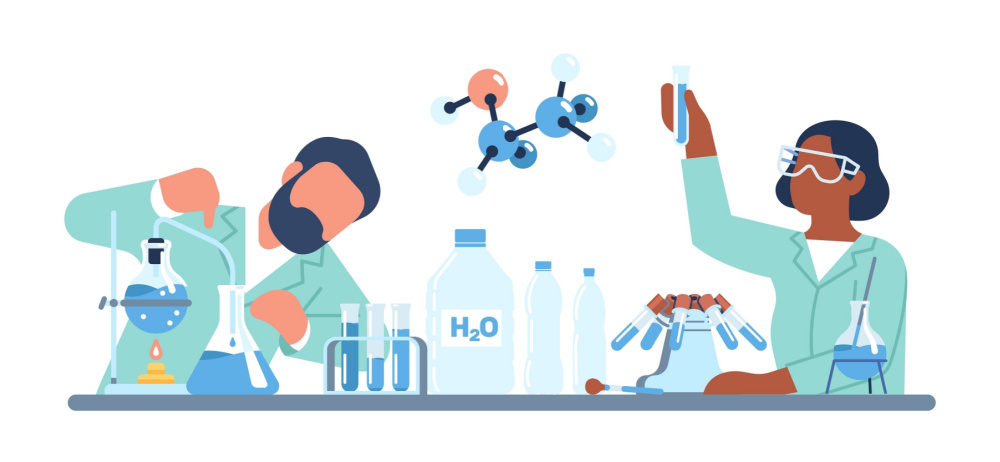
GSA strengthens water quality efforts in federal buildings
Post filed in: Federal Buildings
In 2024, GSA is conducting water testing across many federal buildings to support the health and safety of those who work in and visit those buildings. This testing helps building managers maintain a healthy work environment. We sat down with Courtney Springer, Assistant Commissioner for Facilities Management at GSA, to ask some questions about how GSA approaches water testing and remediation in the federal buildings it oversees.
What is a water management program?
Properly maintaining and testing a building’s water system supports building managers’ efforts to reduce the presence of heavy metals as well as conditions in which Legionella and other bacteria can grow. This is important for large buildings – like many GSA facilities – as well as buildings with unique features like decorative fountains or cooling towers. A program to manage water quality helps us understand where issues affecting quality might occur and how to fix any problems. This can include checking the temperature, the amount of disinfectants like chlorine at various places, and more.
Why would a building be tested for Legionella?
Testing helps ensure that the water management program is working. For example, you can get a baseline measurement like we’re doing at many buildings this year, so that Legionella – which is naturally present in drinking water – can be checked over time. Even buildings that do a good job managing their water might detect Legionella. Maintaining good water quality can help ensure that small levels of Legionella aren’t able to grow, spread, or get anyone sick.
Why is GSA focusing on water-quality management best practices right now, when it comes to things like Legionella?
According to the CDC, Legionnaires’ disease and Pontiac fever - which is related - remain rare, but the number of cases reported has grown over the past 20 years. So it’s good for everyone in our industry to pay more attention to water quality, including people who own or manage buildings like healthcare facilities, hotels, and - in the case of GSA - office buildings.
That’s why we’re working to ensure the safety and wellbeing of people who work in or visit our buildings. For example, this year we are testing for Legionella as well as things like heavy metals across many buildings. At the same time, we saw that some of the standards for managing water from industry groups were updated, so we’re modeling the latest practices in water management.
What happens when GSA gets a water test result at a location in a building that shows Legionella?
Testing experts tell us that about half of the water samples they take come back positive for Legionella – again, that’s not surprising because it naturally occurs in water. What the CDC says is that the goal of water management is to ensure that it’s well controlled. So, if a test result indicates that a system isn’t well controlled, we’ll take actions based on CDC guidance as well as that of industry groups like ASHRAE and the American Industrial Hygiene Association. That means we will do things like restrict access to fixtures, notify tenants with signage, flush the system, and make other adjustments to the system operations. We’ll then retest, of course, and in the meantime, we’ll take extra steps, such as providing bottled water for tenants.
So, give us the real talk. Should people be afraid of getting sick from drinking water at office buildings?
Generally, no. Using building water for hand washing and consumption presents a low risk to contracting Legionnaires’ disease according to the CDC; because, inhalation of air particles that contain Legionella is the primary source of contracting Legionnaires. But we’re being vigilant, adhering to updated industry standards, and taking an aggressive approach to testing and treatment.
In other words, just because a result shows that Legionella growth is not well controlled in a fixture, it doesn’t mean there’s an immediate risk to people; we’ll be particularly concerned with inhalation from things like showers or humidifiers because that remains the primary way to get infected, per the CDC. We are keeping tenants informed when we make modifications if results indicate Legionella growth is not well controlled and sharing testing results with tenants. In other words, GSA is taking a comprehensive, science-based, transparent approach to what we’re doing.
Should GSA expect more test results showing that Legionella growth is not well controlled due to more testing this year?
Yes. Since Legionella is naturally present in drinking water, more water testing overall will typically lead to more tests showing some areas where Legionella growth is not well controlled. By uncovering that information, it allows landlords like GSA to take actions and make operational changes like more frequent flushing. A prudent, proactive approach is what’s most important when it comes to water quality management, and that’s what we’re doing. My hope is that by keeping our tenants informed when we get a result that Legionella growth is not well controlled at a fixture in the building, we’ll build trust that we’re proactively identifying and fixing issues and keeping people safe.
Can people who are worried about water quality take any extra steps in GSA buildings - or any buildings for that matter - to keep themselves safe?
Even though the risk is low, the CDC has some guidance for people who are 50 or older, a current or former smoker, have chronic lung disease, or have a weak immune system. If you fall into any of these categories, the CDC recommends you consider things like not taking a shower at a facility and filling a sink slowly to avoid creating mist. Of course, you can always talk to your healthcare provider about other precautions they may recommend. And, I know that federal agencies have points of contact if - for example - a federal employee’s healthcare provider recommends alternative accommodations while any water quality issues are addressed.

 U.S. General Services Administration
U.S. General Services Administration
